Table of Contents
In English grammar, reflexive pronouns play an important role in showing that the subject and the object of a verb refer to the same person or thing. They make speech and writing more accurate by avoiding repetition.
Example: Anna prepared herself for the exam.
Here, herself reflects back to Anna. The action is done and received by the same person.
What Are Reflexive Pronouns?
A reflexive pronoun ends in -self for singular forms and -selves for plural forms. It reflects the action of the verb back to the subject of the sentence.
Reflexive pronouns are used after a verb or preposition when the action affects the subject directly.
Example:
- He blamed himself for the mistake.
- They looked at themselves in the mirror.
These pronouns avoid unnecessary repetition like: He blamed he or They looked at they.
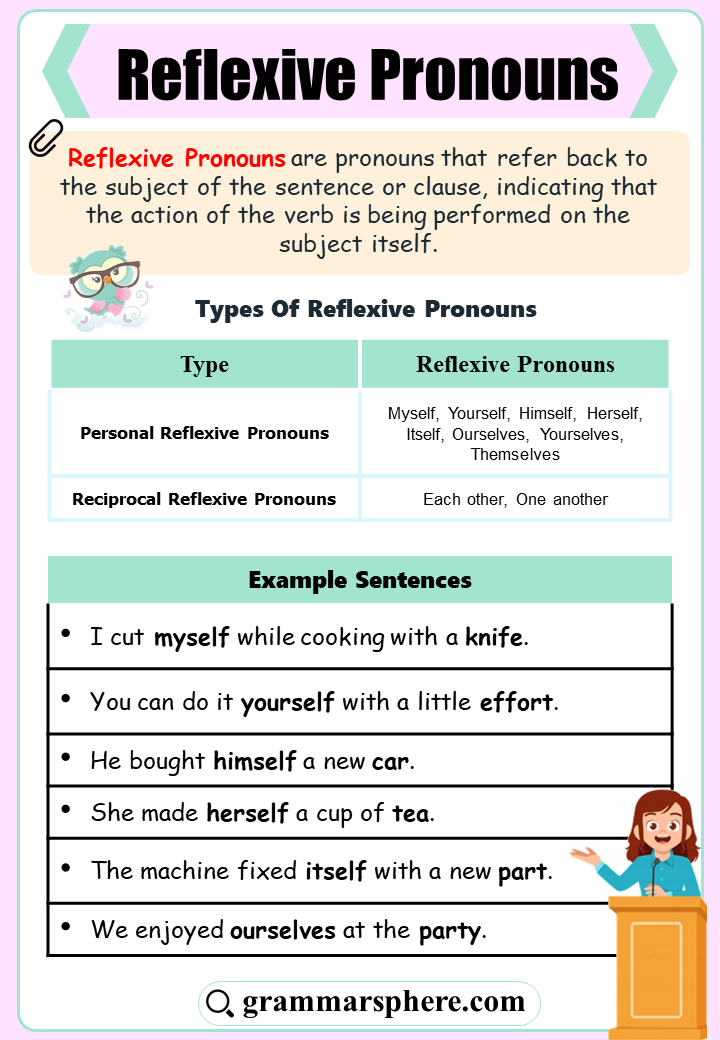
List of Reflexive Pronouns
| Singular | Plural |
|---|---|
| myself | ourselves |
| yourself | yourselves |
| himself | themselves |
| herself | — |
| itself | — |
Each pronoun must agree with its subject in number and person.
How Reflexive Pronouns Are Used
a. When the subject and object are the same
Reflexive pronouns are used when the doer and receiver of the action are the same person or thing.
- I cut myself while cooking.
- She introduced herself to the new class.
- The cat cleaned itself.
b. After certain verbs and prepositions
Some verbs commonly take reflexive pronouns when the action returns to the subject.
- He taught himself to play guitar.
- She looked at herself in the mirror.
- They enjoyed themselves at the concert.
c. To show independent action
When you want to emphasize that someone acted alone or without help, reflexive pronouns follow by.
- He completed the project by himself.
- We built this house by ourselves.
Reflexive Pronouns for Emphasis (Intensive Use)
Reflexive pronouns can also be used to emphasize the subject rather than reflect the action.
Examples:
- I baked this cake myself. (emphasis that no one else did)
- The president himself attended the ceremony.
In these cases, the sentence remains correct even if you remove the reflexive pronoun — it simply loses emphasis.
Common Mistakes to Avoid
a. Using a reflexive pronoun unnecessarily
❌ Myself went to the shop.
✅ I went to the shop.
b. Using the wrong form
❌ He hurt myself.
✅ He hurt himself.
c. Forgetting agreement with the subject
❌ They prepared himself.
✅ They prepared themselves.
d. Mixing up emphatic and reflexive use
Remember that I did it myself emphasizes independence, while I hurt myself reflects the action.
Reflexive Pronouns in Everyday English
Reflexive pronouns appear naturally in spoken and written English.
- Please make yourself comfortable.
- Behave yourself during the meeting.
- We enjoyed ourselves on vacation.
- The machine stopped itself when overheated.
They are also used in formal writing to avoid repetition and make sentences concise.
Summary
Reflexive pronouns make sentences clearer by showing that the action returns to the doer. They can also add emphasis or show independence. Always ensure the reflexive pronoun agrees with its subject and avoid using it where it isn’t needed.
Key idea: If the subject and object are the same, use a reflexive pronoun.
FAQS
Q1. What is the difference between reflexive and object pronouns?
Object pronouns (me, him, us) refer to a different person or thing, while reflexive pronouns (myself, himself, ourselves) refer back to the subject.
Q2. Can reflexive pronouns be used for emphasis?
Yes, reflexive pronouns can be used with “by” to emphasize independence (He fixed the car by himself).
Q3. Do reflexive pronouns always end in “-self” or “-selves”?
Yes, singular reflexive pronouns end in “-self” (myself, himself), while plural ones end in “-selves” (ourselves, themselves).
You May Also Like

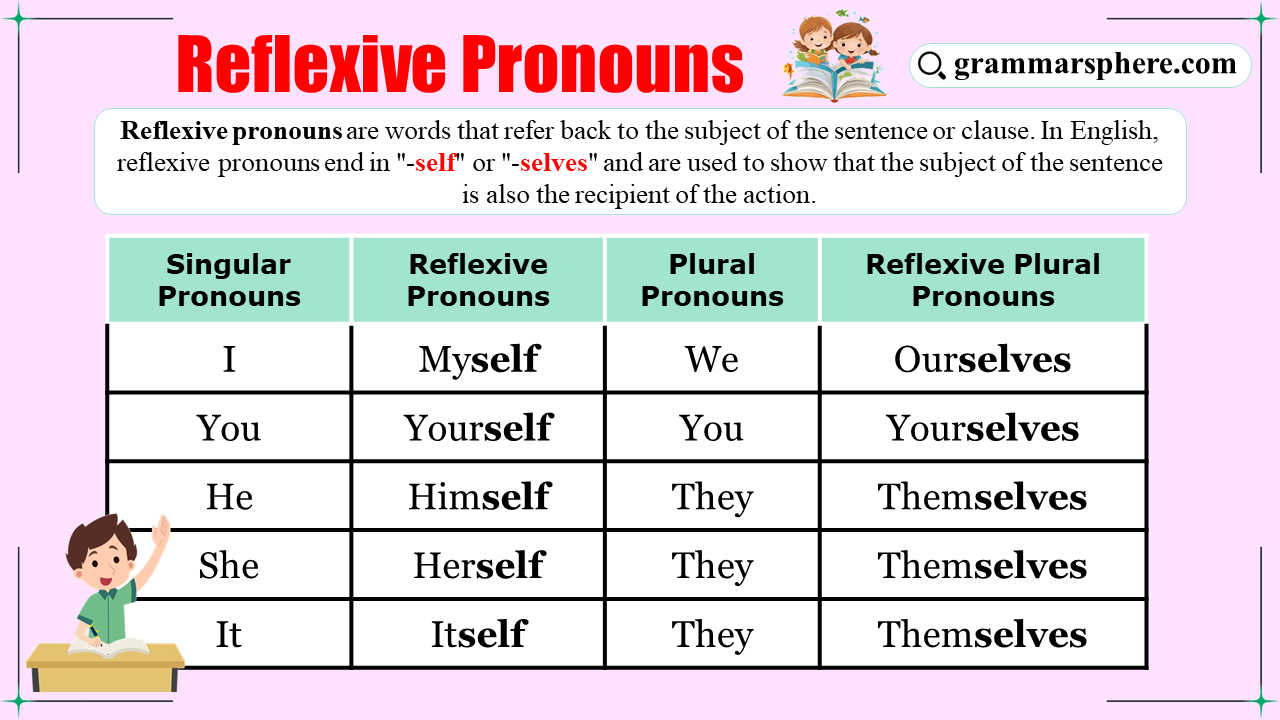
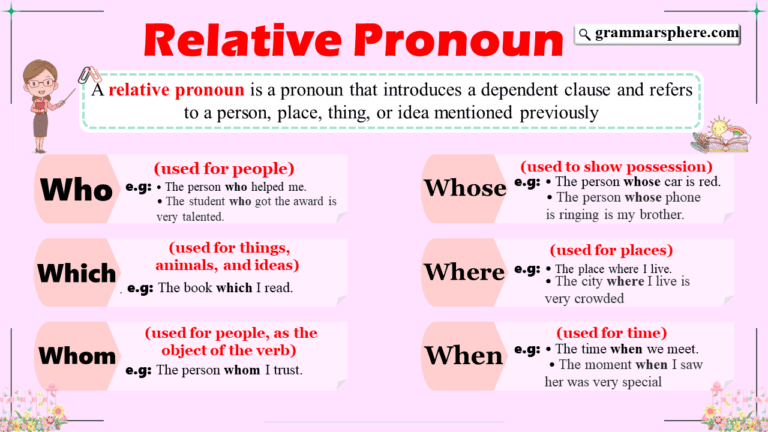
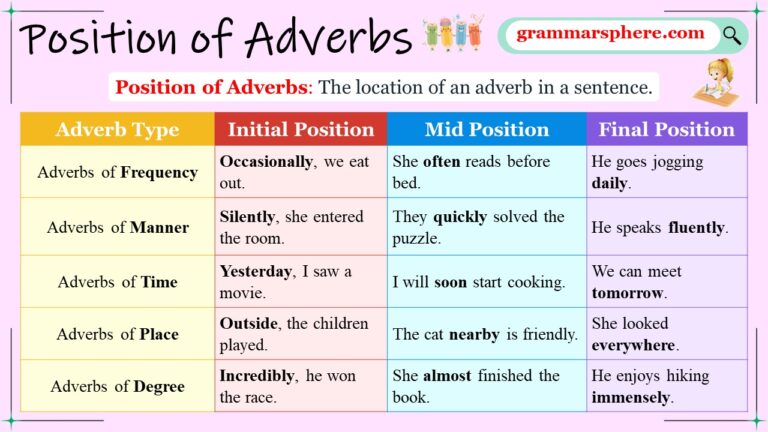
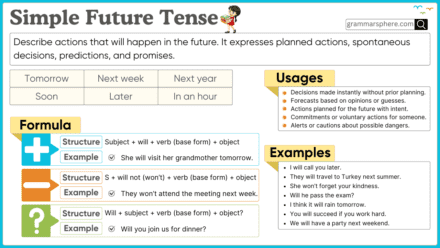
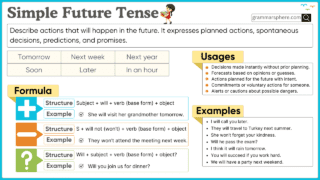
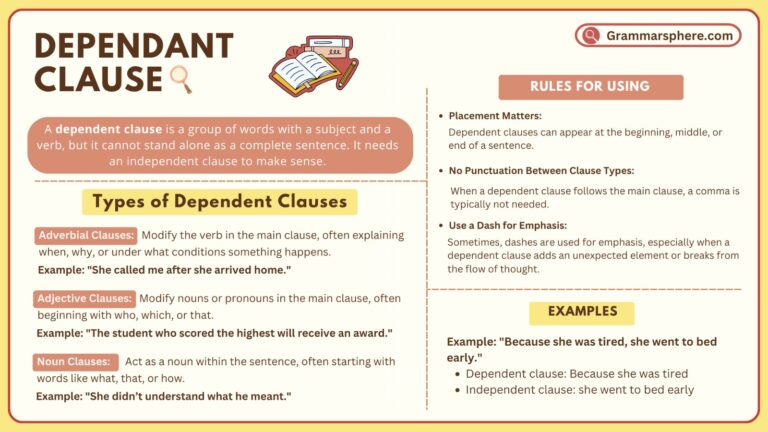
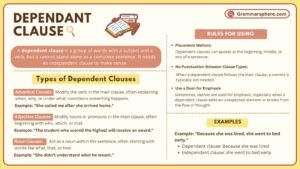
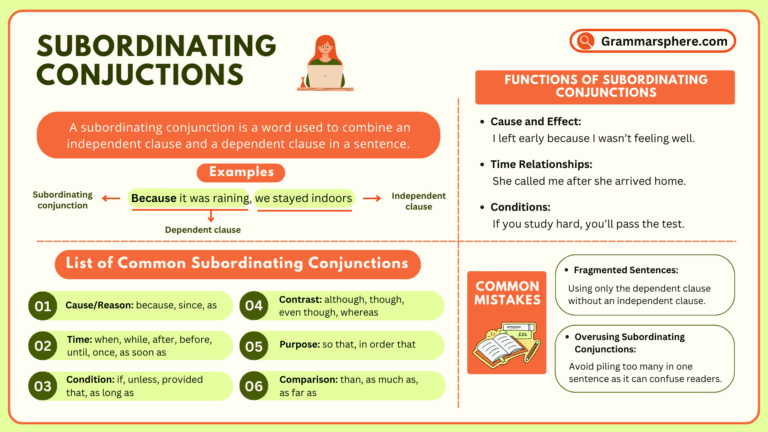
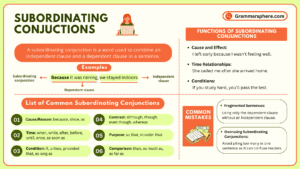
Leave a Comment